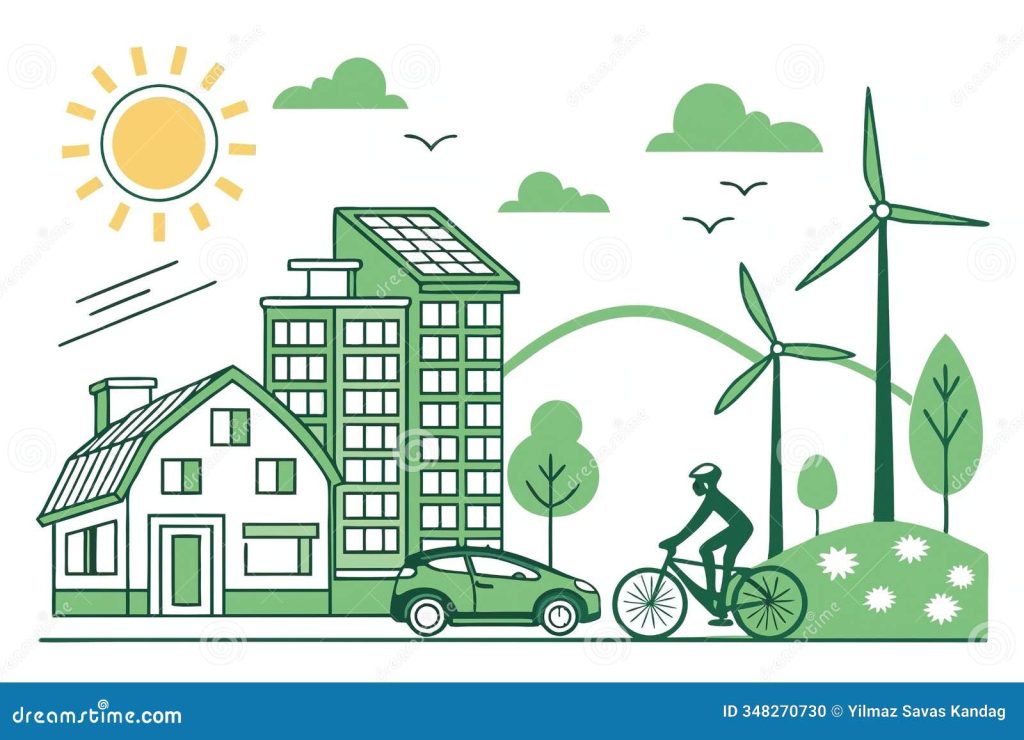Creating an eco-friendly garden is not only beneficial for the environment, but it can also be aesthetically pleasing and enhance the overall appeal of your outdoor space. By incorporating sustainable practices and using environmentally friendly materials, you can create a garden that is not only beautiful but also good for the planet. In this article, we will discuss some tips on how to create an eco-friendly garden for your outdoor space.
1. Start with a Plan
Before you start digging and planting, it’s important to have a clear plan for your eco-friendly garden. Consider the layout of your outdoor space, the amount of sunlight it receives, and the type of soil you have. Think about what types of plants you want to include in your garden and how they will complement each other. Planning ahead will help you create a cohesive and sustainable garden that will thrive for years to come.
2. Choose Native Plants
One of the best ways to create an eco-friendly garden is to use native plants. Native plants are well-adapted to the local climate and soil conditions, which means they require less water, fertilizer, and pesticides to thrive. By choosing native plants, you can create a low-maintenance garden that supports local wildlife and helps conserve water.
3. Use Organic Fertilizers and Pest Control
Instead of using chemical fertilizers and pesticides, opt for organic alternatives that are safer for the environment and your plants. Compost is a great natural fertilizer that can help improve soil quality and provide essential nutrients to your plants. You can also use natural pest control methods such as companion planting, beneficial insects, and homemade remedies to keep pests at bay without harming the environment.
4. Conserve Water
Water is a precious resource, so it’s important to use it wisely in your garden. Consider installing a rain barrel to collect rainwater for watering your plants. Mulching around your plants can help retain moisture in the soil and reduce the need for frequent watering. Choose drought-tolerant plants that require less water and invest in a drip irrigation system to water your garden efficiently.
5. Create Habitat for Wildlife
One way to make your garden more eco-friendly is to create habitat for wildlife. Plant native flowers and shrubs that attract pollinators such as bees, butterflies, and hummingbirds. Provide shelter for birds with birdhouses and nesting boxes. Create a small pond or water feature to attract frogs, toads, and other beneficial wildlife. By creating a diverse and sustainable ecosystem in your garden, you can help support local wildlife and promote biodiversity.
6. Use Sustainable Materials
When designing your eco-friendly garden, consider using sustainable materials such as reclaimed wood, recycled plastic, and natural stone. Choose eco-friendly pots and planters made from recycled materials or biodegradable materials. Avoid using synthetic fertilizers, pesticides, and herbicides that can harm the environment and pollute water sources.
7. Practice Sustainable Garden Maintenance
To maintain your eco-friendly garden, practice sustainable gardening techniques such as composting, recycling, and mulching. Keep weeds in check by hand-weeding or using natural weed control methods. Regularly monitor your garden for pests and diseases and address them promptly with organic remedies. By practicing sustainable garden maintenance, you can create a healthy and thriving garden that benefits both you and the environment.
In conclusion, creating an eco-friendly garden is a rewarding and worthwhile endeavor that can have a positive impact on the environment. By following these tips and incorporating sustainable practices into your garden design, you can create a beautiful and sustainable outdoor space that supports biodiversity, conserves resources, and promotes a healthy ecosystem. Whether you have a small balcony or a spacious backyard, there are many ways you can create an eco-friendly garden that is both environmentally friendly and aesthetically pleasing. So roll up your sleeves, get your hands dirty, and start creating your own eco-friendly garden today!

